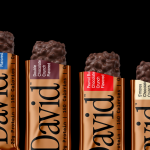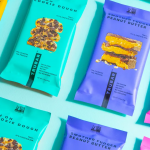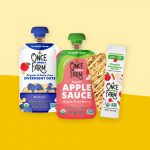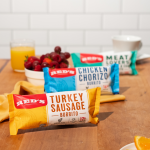Afia Builds Frozen Syrian Food Platform
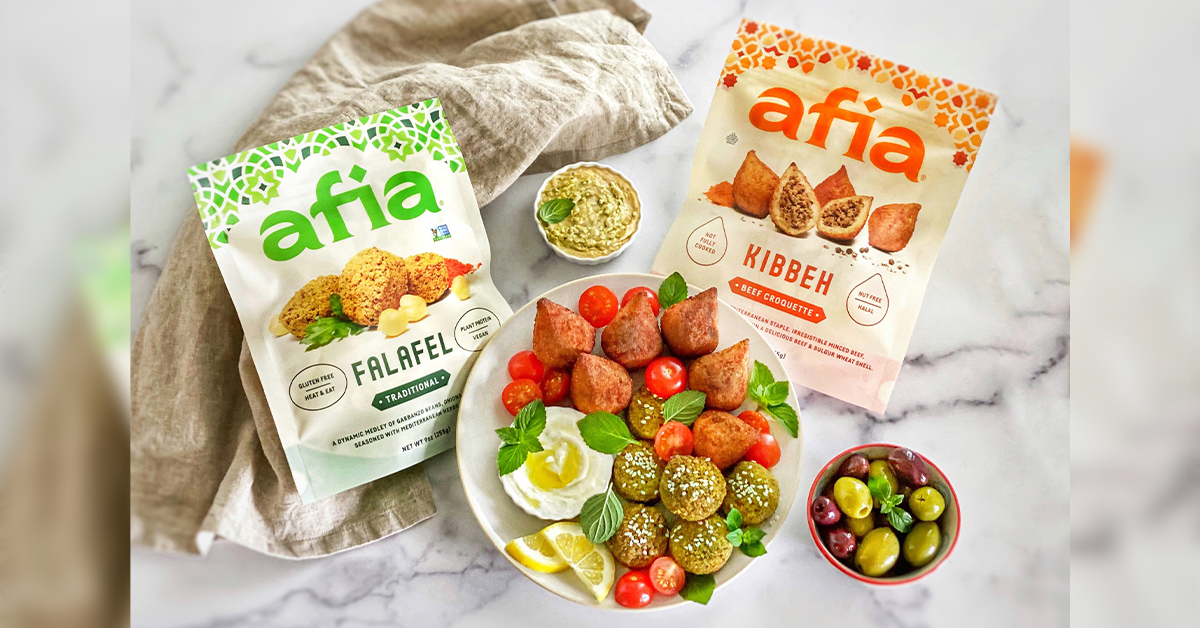
After being delayed for over a year, Middle Eastern frozen food maker Afia is hoping its recent move into a new 21,000 sq. ft. production facility can unlock opportunities to expand with new products and co-manufacturing services.
Launched in 2017 by Farrah Sibai and her husband Yassin, the Texas-based Mediterranean food company has gradually expanded from its flagship falafel into a variety of frozen entrees with distribution in conventional and natural channels. The company closed a $4 million Series A round in January (though announced in June) with the second tranche coming from a $3 million investment led by Embree Capital Markets Group.
Afia’s recipes derive from Yassin’s mother, Fadia, who fled Syria in the early 2010s during the country’s ongoing civil war. Blending inspiration with activism, Farrah decided to use her mother-in-law’s recipes to build a frozen food business rooted in traditional Syrian cuisine and that supports refugees by providing work opportunities.
Starting with H-E-B stores in the brand’s home state of Texas, Afia has built a distribution network of more than 3,000 locations mostly situated on the coasts and in the South and Southeast. The brand is in over 460 Whole Foods Markets and has a number of specialty partners on the western seaboard. Available in five varieties – Traditional, Garlic & Herb, Za’atar, Sun-Dried Tomato and Turmeric – each 9 oz bag of frozen falafel retails for about $5 in most stores.
Afia also offers a heat-and-eat frozen beef kibbeh sold exclusively in H-E-B stores.
The company began preparing in 2020 to expand from its 5,000 sq. ft. facility into a larger space that could meet the demands for both the brand and its co-manufacturing business. Having found a site location in Taylor, a suburb of Austin, pandemic-related supply chain issues delayed the production facility opening over a year.
During that time, Afia continued to grow and was forced to drop most of its co-packing business to keep up with demand on its own branded products, Yassin said.
But in September, Afia finally moved into its new space and is now producing about 200,000 falafels per day (with capacity to move up to half a million), about 3x the output than before. The company believes that it can produce 8 to 10 times more product in the new facility with room to grow into an additional 20,000 sq. ft. space next door.
Still Afia is finding it hard to keep up with demand as retailer interest has grown quickly since moving into the new facility.
“It took me three years to sign up 3,000 doors for my falafel and it took me a few emails through retailers to sign up to 1200 [additional] doors already,” Yassin said.
The brand intends to return to its co-manufacturing business but is “picky” about its co-packing clients, Yassin said. “That said, we do have the bandwidth and I need to fill that soon. Idle time is considered inefficiency and an expense for us.”
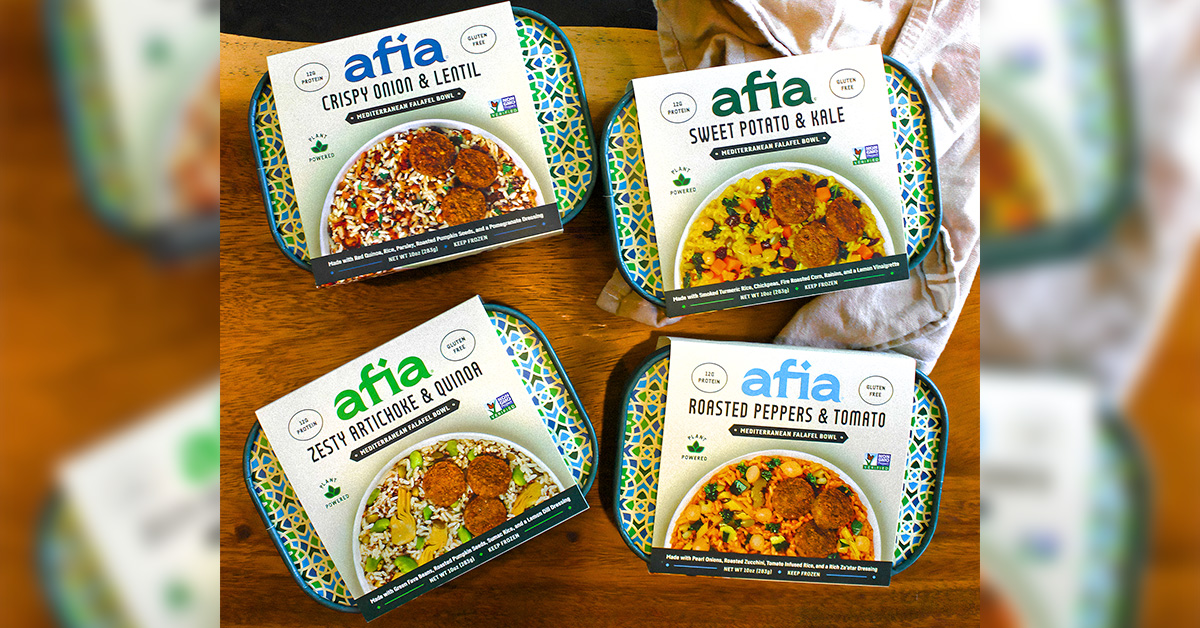
In August, Afia launched a four-SKU line of Mediterranean Falafel Bowls frozen entrees (Crispy Onion & Lentil, Sweet Potato & Kale, Zesty Artichoke & Quinoa, and Roasted Peppers & Tomato) with a suggested price of $6 each.
The brand is bullish on the frozen meals, devoting about 20% to 30% of its new production space to the line, which it sees as a way to lean into consumer interest in high-protein, plant-based frozen entrees that are “versatile and convenient,” Farrah said.
“It’s very different to the flavors out there and I think consumers are really looking for those global cuisines,” she said. “If you go to the frozen section right now and you buy a frozen meal, it’s not filling. A lot of it is sauce.”
Consumer interest in frozen meals has been increasing among younger generations with Gen Z and Millennials seeking out more ready-to-eat, ethnic foods in the category. Assortment is also driving growth in frozen as sales are rising in mass and club channels, according to recent research by the American Frozen Food Institute.
Looking beyond grocery, Afia has also used its new investment and manufacturing capacity to try its hand at the club channel. The company did two Austin-area Costco roadshows where it sold out of product and, though Afia has not secured a placement yet, Yassin said it is confident it is well-positioned to reach club store shoppers.
“In the conventional channel, price matters,” he said. “Having been conscious of the price tag on-shelf and being the manufacturer has really allowed us to do well.”



